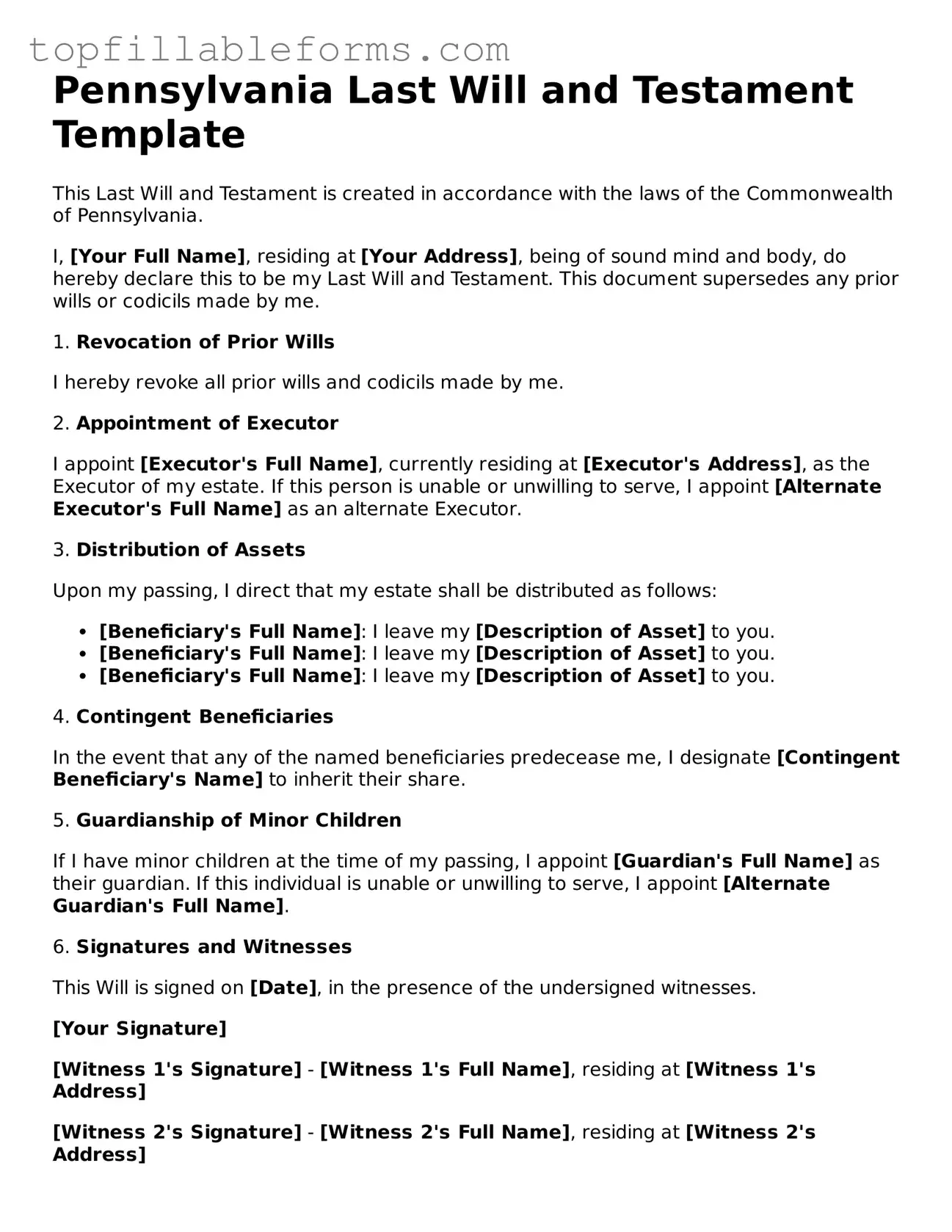Attorney-Verified Last Will and Testament Template for Pennsylvania
A Last Will and Testament in Pennsylvania is a legal document that outlines how a person's assets and affairs should be handled after their death. This form allows individuals to express their wishes regarding the distribution of their property, guardianship of minors, and other important matters. Understanding the requirements and components of this document is crucial for ensuring that one's intentions are honored.
Open Last Will and Testament Editor Here

Attorney-Verified Last Will and Testament Template for Pennsylvania
Open Last Will and Testament Editor Here
Finish the form now and be done
Finish your Last Will and Testament online by editing, saving, and downloading fast.
Open Last Will and Testament Editor Here
or
▼ PDF File
